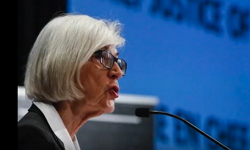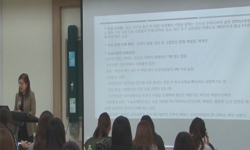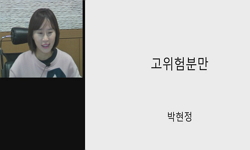The 1980s marked a significant turning point in China’s history with the onset of market reforms, leading to changes in family structure and women’s gender roles. This paper analyzes the process by which the public provision of childcare, a hallma...
http://chineseinput.net/에서 pinyin(병음)방식으로 중국어를 변환할 수 있습니다.
변환된 중국어를 복사하여 사용하시면 됩니다.
- 中文 을 입력하시려면 zhongwen을 입력하시고 space를누르시면됩니다.
- 北京 을 입력하시려면 beijing을 입력하시고 space를 누르시면 됩니다.

1980년대 시장화개혁과 중국 여성 — ‘돌봄’과 ‘노동’ 담론을 중심으로 = Market Reform and Chinese Women in the 1980s: Focusing on Discourses of ‘Care’ and ‘Labor’
한글로보기https://www.riss.kr/link?id=A109226803
-
저자
김미란 (성공회대학교 대학원;동아시아연구소)
- 발행기관
- 학술지명
- 권호사항
-
발행연도
2024
-
작성언어
Korean
-
주제어
1980s Reforms ; Care ; Labor ; gender equality ; wise mother and good wife ; <<중국부녀>> ; 가사노동 ; 시장화개혁 ; 우생 ; 모성
-
등재정보
KCI등재
-
자료형태
학술저널
-
수록면
137-177(41쪽)
- DOI식별코드
- 제공처
-
0
상세조회 -
0
다운로드
부가정보
다국어 초록 (Multilingual Abstract)
The 1980s marked a significant turning point in China’s history with the onset of market reforms, leading to changes in family structure and women’s gender roles. This paper analyzes the process by which the public provision of childcare, a hallmark of Maoist socialism, was relegated to the private sphere, and how working women voiced their concerns during this transition. The analysis centers on articles from Chinese Women (Zhongguo Funü 中国妇女: 1978-1989). Care, defined as “something everyone needs at some point,” is examined not as a gendered role but as a result of socialization. The study reveals the dual difficulties women faced in balancing work and family life. The demand for public childcare, which gained temporary traction after the Cultural Revolution, was rapidly weakened under eugenic guidelines aimed at producing high-quality offspring and economic strategies emphasizing production efficiency. Consequently, women encountered significant gender discrimination in resource distribution, along with an increased burden of care responsibilities. Despite their calls for gender equality, women’s demands were not realized. Instead, the discourse shifted to support ‘gendered labor,’ reflecting women’s rejection of the gender-mixed heavy labor of the socialist period. From the mid-1980s, officials and men increasingly emphasized ‘motherhood,’ propagating the ideal of the ‘wise mother and good wife (xianqiliangmu 贤妻良母).’ Technological advancement was seen as a market-driven solution to reduce care labor, encapsulated in the concept of ‘socialization of housework.’ The gendered nature of care labor showed no change before and after the Cultural Revolution, and the spread of the contract labor system further exacerbated the labor environment and care burden for women as the 1980s progressed.
동일학술지(권/호) 다른 논문
-
국가-민족에 대한 균열 시도와 지점 찾기 — 쑨핀(孫頻)의 「청동으로 된 몸(青銅之身)」과 하이난(海男)의 『신체 제사(身體祭)』를 예로
- 한국중국현대문학학회
- 김서은
- 2024
- KCI등재
-
- 한국중국현대문학학회
- 장수지
- 2024
- KCI등재
-
신시대 중국 고등어문교육과 교과서에 나타난 문화 정체성 내재화 연구 — 2004년 판과 2019년 판(2020년 개정)의 비교를 중심으로
- 한국중국현대문학학회
- 한담
- 2024
- KCI등재
-
성평등 노동, 원칙의 당위성과 실천의 곤혹 — 중화인민공화국 초기 성별 동일노동 동일임금의 실천을 중심으로
- 한국중국현대문학학회
- 박석진
- 2024
- KCI등재




 KISS
KISS






